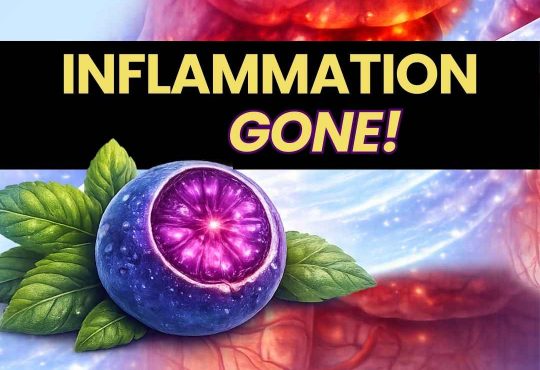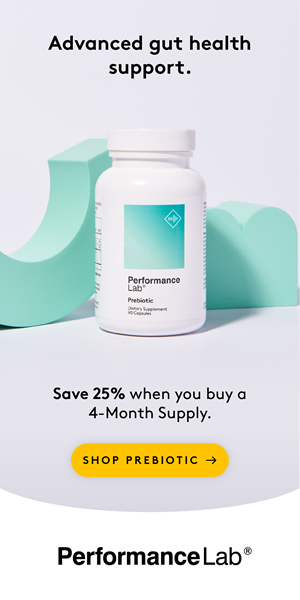
Top 7 Foods To Clean Arteries And Prevent Heart Attacks
Heart health is of utmost importance, and making dietary choices that promote clean arteries can significantly reduce the risk of heart disease and related complications.
Arteries play a crucial role in transporting oxygen-rich blood to the heart and other organs.
Over time, arteries can become clogged with plaque buildup, leading to narrowed arteries and restricted blood flow.
This can increase the risk of heart attacks and other cardiovascular problems.
We’ll delve into the science behind how these foods work to improve arterial health and reduce the risk of heart attacks.
Now, let’s embark on this journey together and discover the top 7 foods that can effectively clean arteries and safeguard your heart against potential heart attacks.
Number 7. Leafy Green Vegetables
When it comes to keeping our arteries clean and preventing heart attacks, Mother Nature has gifted us with some incredible foods, and leafy greens definitely take the spotlight in this healthy lineup.
Imagine a plate filled with vibrant, crisp spinach and kale leaves, teasing your taste buds and whispering promises of a healthier heart.
These green superheroes are not just delicious, they’re packed with a powerful punch of nutrients that can make a real difference in your cardiovascular health.
So, what makes leafy greens like spinach and kale so heart-friendly?
Well, first off, they’re bursting with antioxidants, those mighty warriors that fight against the oxidative stress and inflammation that can clog up our arteries.
By incorporating more of these greens into your meals, you’re giving your heart a shield of protection.
But that’s not all! Leafy greens are also rich in dietary nitrates, which may sound a bit technical, but trust me, they’re pretty awesome.
Once inside our bodies, these nitrates are transformed into nitric oxide, a compound that works magic on our blood vessels.
Nitric oxide helps to relax and widen our blood vessels, allowing for better blood flow and lower blood pressure.
It’s like giving your arteries a much-needed spa day!
And the studies? Oh, they’re definitely on board with the leafy green love.
A study published in the journal Hypertension found that a higher intake of dietary nitrate, mostly from leafy greens, was linked to a reduced risk of stroke and heart disease.
Another study published in JAMA Internal Medicine discovered that people who enjoyed a diet rich in leafy greens had a lower risk of heart failure.
Talk about leafy greens packing a powerful punch!
So, don’t shy away from piling your plate high with these leafy wonders.
Whether you prefer them in a salad, blended into a refreshing smoothie, or sautéed with garlic and olive oil, leafy greens are your heart’s best friend.
Remember, it’s all about embracing a balanced diet that includes a variety of fruits, vegetables, whole grains, lean proteins, and healthy fats.
But when it comes to giving your heart some extra love, leafy greens are the shining stars.
Number 6. Berries
Imagine a bowl of juicy blueberries, strawberries, and raspberries, bursting with vibrant colors and tantalizing your taste buds with their natural sweetness.
These small but mighty fruits are like a symphony of health benefits for your heart.
Why are berries such rockstars when it comes to keeping our arteries clean and preventing heart disease?
Well, it all comes down to their impressive arsenal of antioxidants and anti-inflammatory compounds.
These powerful warriors work tirelessly to protect our precious cardiovascular system from the damaging effects of free radicals and chronic inflammation.
But that’s not all these little gems have to offer.
Berries are also rich in fiber, that unsung hero of heart health.
Fiber acts like a broom, sweeping away the excess cholesterol in our bloodstream and helping to maintain healthy cholesterol levels.
By incorporating more berries into your diet, you’re giving your heart a delicious dose of fiber power.
And let’s not forget the research that supports the berry love affair.
A study published in Circulation, a renowned medical journal, found that women who consumed three or more servings of blueberries and strawberries per week had a significantly lower risk of heart attack compared to those who ate berries infrequently.
Another study published in the American Journal of Clinical Nutrition revealed that a higher intake of berries was associated with a lower risk of developing heart disease in men.
So, the next time you’re at the grocery store or farmer’s market, make sure to load up on these antioxidant-rich beauties.
Enjoy them as a refreshing snack, sprinkle them on your morning oatmeal, or blend them into a delicious smoothie.
Your taste buds and your heart will both be singing with joy.
Number 5. Fatty Fish
Fatty fish like salmon, mackerel, and sardines are hailed as champions for our arteries. It’s all thanks to their abundance of omega-3 fatty acids, those superhero nutrients that bring a multitude of benefits to our cardiovascular system.
Omega-3 fatty acids have been extensively studied and have shown remarkable abilities to reduce inflammation, lower blood pressure, and decrease the risk of heart disease.
They are like the firefighters of our arteries, extinguishing the flames of inflammation and helping to keep our blood vessels relaxed and open for smooth blood flow.
The secret lies in the type of omega-3 fatty acids found in these fish, namely EPA (eicosapentaenoic acid) and DHA (docosahexaenoic acid).
These fatty acids are highly bioavailable and readily absorbed by our bodies, allowing them to work their magic on our cardiovascular health.
Numerous studies have demonstrated the positive impact of omega-3 fatty acids on heart health.
The American Heart Association recommends eating fish rich in omega-3s at least twice a week to reduce the risk of heart disease.
A study published in the New England Journal of Medicine found that regular consumption of fish high in omega-3s was associated with a lower incidence of heart attacks and stroke.
So, why not reel in the benefits of these magnificent fish?
Incorporating salmon, mackerel, and sardines into your diet can be a delicious and nourishing way to support your heart.
Grill them, bake them, or enjoy them in a delectable seafood dish. Your heart will thank you for it.
Number 4. Nuts and Seeds
More than a crunchy medley of goodness that holds the key to a healthier heart. These tiny powerhouses may be small in size, but they are mighty in their ability to support cardiovascular health.
Almonds, walnuts, flaxseeds, and chia seeds are nature’s heart-friendly gems.
They are packed with heart-healthy nutrients like fiber, unsaturated fats, and plant sterols that work together to protect our precious arteries and lower the risk of heart disease.
Let’s start with almonds…
These delicious nuts are not only a satisfying snack but also a rich source of monounsaturated fats, which have been shown to improve cholesterol levels and promote heart health.
A study published in the Journal of the American Heart Association found that consuming almonds regularly can significantly reduce LDL cholesterol, also known as the “bad” cholesterol.
Now, let’s crack open the walnut…
These brain-shaped wonders are high in omega-3 fatty acids, which have been linked to a reduced risk of heart disease.
Walnuts are also packed with antioxidants, fiber, and phytosterols, all of which contribute to their heart-protective properties.
Research published in the Journal of the American College of Cardiology demonstrated that incorporating walnuts into the diet can improve blood vessel function and decrease inflammation, both crucial factors in maintaining a healthy heart.
Moving on to the seeds, we have flaxseeds and chia seeds. These tiny treasures are bursting with heart-healthy benefits.
They are rich in alpha-linolenic acid (ALA), a type of omega-3 fatty acid, which has been associated with a reduced risk of heart disease.
Both flaxseeds and chia seeds are also excellent sources of fiber, which aids in lowering cholesterol levels and promoting a healthy digestive system.
Research has shown that incorporating nuts and seeds into our diet can have a positive impact on heart health.
A study published in the Journal of the American College of Cardiology found that individuals who consumed nuts regularly had a lower risk of developing cardiovascular disease.
Another study published in the Journal of Nutrition reported that adding flaxseeds to the diet resulted in significant reductions in blood pressure and LDL cholesterol levels.
Number 3. Avocados
Avocados, the luscious and creamy fruits that have captured the hearts of many, are not only a delight to the taste buds but also a boon for heart health.
These green gems are packed with monounsaturated fats, the healthy fats that can do wonders for our cardiovascular system.
When it comes to cholesterol, avocados are a true hero.
Their monounsaturated fats have been shown to help lower levels of LDL cholesterol, the so-called “bad” cholesterol, while simultaneously raising levels of HDL cholesterol, the “good” cholesterol.
This delicate balancing act contributes to a healthier lipid profile and reduces the risk of heart disease.
But that’s not all…
Avocados also boast another heart-healthy component: potassium.
This essential mineral plays a crucial role in maintaining healthy blood pressure levels. It helps relax blood vessel walls, promoting better blood flow and reducing strain on the heart.
Research has consistently shown the cardiovascular benefits of incorporating avocados into our diet.
A study published in the Journal of the American Heart Association found that consuming one avocado per day as part of a moderate-fat diet improved cholesterol levels and decreased the risk of metabolic syndrome, a cluster of conditions that increase the risk of heart disease.
So, slice up that creamy avocado and savor its rich, buttery flavor.
Spread it on toast, add it to salads, or blend it into a smoothie.
The options are endless, and the benefits for your heart are remarkable.
Number 2. Garlic
Garlic, the pungent bulb that has been prized for its culinary and medicinal properties for centuries.
Not only does it add flavor to our dishes, but it also brings a host of cardiovascular benefits to the table.
Garlic has long been revered for its ability to promote a healthy heart.
It contains a compound called allicin, which is responsible for many of its therapeutic effects.
Allicin has been shown to have antioxidant and anti-inflammatory properties, helping to protect the cardiovascular system from damage and reduce the risk of heart disease.
One of the remarkable benefits of garlic is its potential to lower blood pressure.
Studies have demonstrated that garlic supplementation can lead to modest reductions in both systolic and diastolic blood pressure.
By relaxing blood vessels and improving circulation, garlic helps to ease the workload on the heart and maintain healthy blood pressure levels.
Another impressive aspect of garlic is its ability to regulate cholesterol levels.
High levels of LDL cholesterol and triglycerides are significant risk factors for heart disease.
Garlic has been shown to reduce total cholesterol and LDL cholesterol levels, while increasing levels of HDL cholesterol, the “good” cholesterol that helps remove LDL cholesterol from the bloodstream.
Furthermore, garlic possesses antiplatelet and anticoagulant properties, meaning it can help prevent the formation of blood clots.
Blood clots can lead to dangerous conditions such as heart attacks and strokes.
By inhibiting platelet aggregation and promoting healthy blood flow, garlic acts as a natural protector against clotting disorders.
Research has consistently highlighted the cardiovascular benefits of incorporating garlic into our diets.
A study published in the Annals of Internal Medicine found that regular garlic consumption was associated with a significant reduction in blood pressure levels.
So, don’t be shy when it comes to adding garlic to your meals.
Whether it’s roasted, sautéed, or minced, this humble ingredient can do wonders for your heart health.
Just keep in mind that to fully harness the cardiovascular benefits, it’s best to consume garlic in its raw or lightly cooked form, as the allicin content is diminished by prolonged cooking.
As with any dietary addition, it’s important to consult with your healthcare professional, especially if you’re taking medications or have underlying health conditions.
Embrace the flavorful and heart-healthy benefits of garlic, and let it infuse your dishes with both taste and well-being.
Number 1. Olive Oil
Extra virgin olive oil, the liquid gold that has been treasured for its health benefits and delicious flavor for centuries.
This Mediterranean gem is not only a staple in the kitchen but also a superstar when it comes to promoting heart health.
Extra virgin olive oil is rich in monounsaturated fats, particularly oleic acid, which has been linked to numerous cardiovascular benefits.
These healthy fats help to improve cholesterol levels by increasing the levels of HDL (good) cholesterol and reducing LDL (bad) cholesterol.
By maintaining a healthy balance between these two types of cholesterol, extra virgin olive oil supports heart health and reduces the risk of heart disease.
But it’s not just the healthy fats that make extra virgin olive oil so heart-friendly.
It is also loaded with antioxidants, such as polyphenols, which help to reduce inflammation and oxidative stress in the body.
Inflammation and oxidative stress are key contributors to the development of heart disease, and the potent antioxidants found in extra virgin olive oil work to counteract these harmful effects.
Numerous studies have demonstrated the heart-protective effects of extra virgin olive oil.
The PREDIMED study, published in The New England Journal of Medicine, found that individuals who consumed a Mediterranean diet supplemented with extra virgin olive oil had a significantly reduced risk of major cardiovascular events, including heart attacks and strokes.
Incorporating extra virgin olive oil into your diet is simple.
Use it as a healthier alternative to butter or margarine when cooking or baking.
Drizzle it over salads, vegetables, or whole grains to add a burst of flavor and heart-healthy goodness.
Just be mindful of portion sizes, as even though it’s a healthy fat, it is still calorie-dense.
When selecting extra virgin olive oil, opt for reputable brands that are certified and ensure the oil is fresh and of high quality.
Look for the term “extra virgin” on the label, as this indicates that the oil is minimally processed and retains the highest level of nutrients and antioxidants.
So, let extra virgin olive oil become your heart’s best friend.
Embrace its rich flavors, embrace its health-promoting properties, and let it nourish your body and delight your taste buds.
And there you have it, 7 incredible foods to clean arteries and prevent heart attacks.
Incorporating leafy green vegetables, berries, fatty fish, nuts and seeds, avocados, garlic, and olive oil into your diet can provide powerful benefits for your heart health.
By nourishing your body with these nutrient-rich foods, you can help reduce inflammation, improve cholesterol levels, and support the overall health of your cardiovascular system.
It’s important to remember that these foods are just one part of a heart-healthy lifestyle, which also includes regular physical activity and stress management.
Now, we want to hear from you.
Have you already incorporated any of these foods into your diet, and have you noticed any positive changes in your heart health?
Share your experiences and insights in the comment section below.
Thank you for joining us on this journey to a healthier heart.
Remember, your heart is precious, so let’s nourish it with the right foods and habits to prevent heart attacks and live a long, vibrant life.









